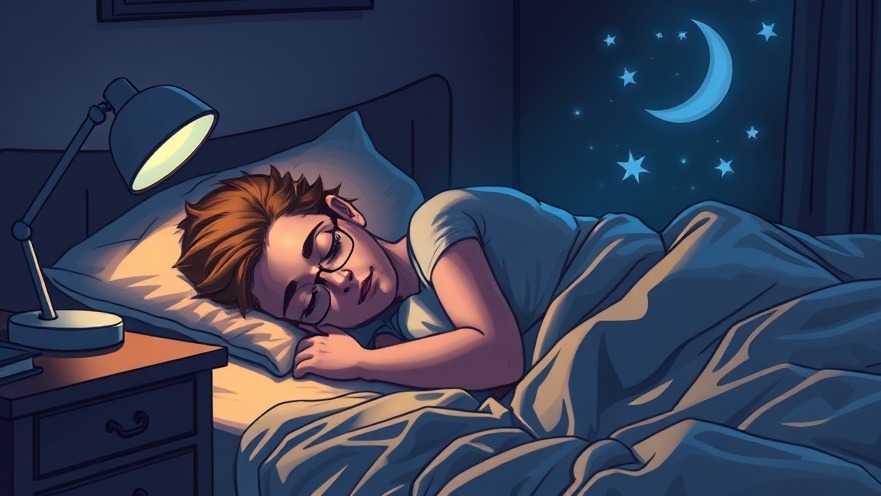
The Landscape of Sleep Health: Understanding the Need for Wearable Trackers
As sleep disorders affect millions globally, the increasing use of wearable devices to measure sleep patterns has emerged as a pivotal approach to foster better sleep health. Recently, the World Sleep Society launched recommendations highlighting the importance of consumer health trackers (CHTs) in sleep monitoring—a tool that can serve as a game changer for those struggling with sleep.
Navigating Through the Recommendations
The recommendations provide clear guidelines for consumers, clinicians, researchers, and manufacturers alike. They encourage the adoption of wearable sleep trackers not just as gadgets but as crucial instruments in improving overall health and well-being. Professor Michael Chee from the National University of Singapore emphasizes that collaboration between clinicians and technology developers is essential to ensuring these devices meet consistent standards of accuracy.
The Power of Consumer Health Trackers
Wearable devices, once limited to fitness tracking, have evolved to serve as insightful sleep monitors. They allow users to keep a continuous log—a diary, if you will—of their sleeping habits. This capability enables individuals to observe patterns over time, ultimately aiding in the enhancement of mood, cognitive functions, and even immunity. This ongoing analysis addresses some of the common issues faced by many, including insomnia and irregular sleep patterns.
What to Consider When Choosing a Sleep Tracker
Purchasing the right wearable device is essential for achieving beneficial results. The new recommendations suggest focusing on fundamental sleep measures like sleep duration and timing rather than getting caught up in the specifics of various sleep stages, such as REM or deep sleep. These basic measures are actionable and can lead to meaningful changes in one's routine.
Reflection and Experimentation: Personalizing Your Sleep Approach
One of the most valuable takeaways is the encouraged practice of self-reflection regarding one's pre-sleep routine. Individuals are invited to experiment with changes in their nightly habits and observe the outcomes using these trackers. This proactive approach fosters self-awareness and personal responsibility in achieving better sleep. The more users understand their habits, the more equipped they are to make effective adjustments.
Future Directions: A Collaborative Effort for Better Sleep
Looking ahead, the partnership between technology developers and health professionals will be key in harnessing the full potential of wearable sleep trackers. With the right frameworks in place, these devices may significantly enhance sleep measurement accuracy and the overall user experience. As we move toward a more tech-integrated approach to health, the recommendations from this collaborative effort stand as a promising blueprint for the future of sleep health.
Conclusion: Take Charge of Your Sleep
In light of this wealth of information, those suffering from sleep disorders should explore the potential of wearable sleep trackers. Understanding how to optimize their sleep through conscientious monitoring can emotionally empower individuals to reclaim their health. Taking proactive steps toward improving your sleep quality could be the catalyst for broader improvements in overall well-being. Additionally, joining discussions within health communities or forums can provide further alignment and support in your journey towards better sleep.
 Add Row
Add Row  Add
Add 




 Add Row
Add Row  Add
Add 

Write A Comment